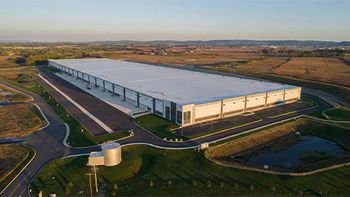
'Big Data' will be a high priority for business executives--provided that its promise meets expectations
Industry survey from Knowledgent probes management receptivity to Big Data projects
This year’s IT buzzphrase, Big Data, is getting a lot of play in media and consulting circles, even as what the phrase encompasses, and how it differs from conventional business analytics, continues to be debated. Knowledgent (New York) an IT consultancy and analytics service—with considerable skin the Big Data game—conducted an online survey to test how seriously business and IT managers in financial services, insurance and life sciences are considering the potential of Big Data, and how willing they are to commission projects around the technology. The results:
- 83% agree that Big Data will elevate data-driven management practices into the mainstream; so much so that familiarity with it will be a management job qualification
- 71% believed that it will unleash “mass innovation” leading to a positive impact on GDP, comparable to the effects of process automation over the past few decades
- 95% agreed that Big Data will move forward from the bottom up, rather than as a top-down management initiative, meaning that, according to Knowledgent, projects will proceed from a lot of “small insights that provide operational-level improvements”
- And at the same time, 72% of respondents agreed that “Big Data is a solution looking for a problem,” such that enterprise clients are still looking for business cases to justify expenditures on the technology.
Big Data means different things to different people, and within the life sciences, it’s easy to argue that most clinical trials have been, and will increasingly become, individual Big Data projects as researchers ferret out value, or safety signals, from the datasets generated. Other researchers employ Big Data techniques to conduct basic research on genetics, biomarkers and other fundamental science. In the marketing arena, Big Data commonly encompasses gathering massive volumes of online data, from social media, search and messaging to understand market trends.
Knowledgent, which says it has a handful of projects currently under way with life sciences clients, is certainly betting on this technology. The company is also holding a meeting in Jersey City, NJ, on November 1 to bring in interested potential clients and Knowledgent business partners.
Newsletter
Stay ahead in the life sciences industry with Pharmaceutical Commerce, the latest news, trends, and strategies in drug distribution, commercialization, and market access.



